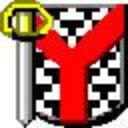Yahoo Answers is shutting down on May 4th, 2021 (Eastern Time) and beginning April 20th, 2021 (Eastern Time) the Yahoo Answers website will be in read-only mode. There will be no changes to other Yahoo properties or services, or your Yahoo account. You can find more information about the Yahoo Answers shutdown and how to download your data on this help page.
Trending News
Italian question: What vowel is the apostrophe in Lorenzo de'Medici substituting for?
I'm reading a historical novel, and have been struck by all the instances of "de" in surnames being spelled w/ an apostrophe, which is apparently standard usage in Italian.
The online dictionaries and grammars inform me that an Italian apostrophe indicates a dropped final vowel. That is in fact what I expected, as in D'Egidio, presumably elided from De+Egidio, or Dell'Amore, I suppose from Della+Amore, or Dell'Orso, from Dello+Orso (if I've got my genders right), eventually from Di+Lo+Orso.
But I can't figure what's going on with de' before consonants! Looking up "de" gets me nowhere, except to make perfectly clear that the Italian equivalent of Spanish "de" (which I know more about) is "di", and that "de" is restricted to names.
So, what's the history here?
OK, make that Di+Egidio. (I did admit I know Spanish somewhat better.)
@ Screaming Bunny: Uh, no.
I can't say that there's no language where prepositions have singular and plural forms, but Romance languages certainly don't, any more than English does! Italian "dei" is emphatically not the plural of "de"; it means "of the", from di+i by dissimilation.
@ Others: Could the Bunny actually have the right answer for the wrong reason? Is de'Medici be from dei+Medici, so Lorenzo de'Medici = Lorenzo dei+Medici, Lawrence of the Medici??
Aargh! Make that "Could de'Medici be ..."
2 Answers
- 8 years agoFavorite Answer
In "de" the elided vowel is "i": the full form would be "Lorenzo DEI Medici". "Dei" is a "preposizione articolata" (preposition + article): "dei" stands for "di i" (of the). "Lorence of the Medici", where "Medici" was a family. To put it quite simply, Queen Elizabeth would be "Elisabetta de' Windsor" (Elizabeth of the Windsors). Please note that the elision of the "i" in "dei" is not in use anymore in standard modern Italian.
"D'Egidio" is "Di Egidio", "Dell'Amore" is "Dello amore", "Dell'Orso" is "Dello Orso: in the last two examples, elision is mandatory.
Source(s): Bilingual English/Italian - Fabio LevaLv 68 years ago
"Medici" is plural. So it should have been "dei Medici" instead of "de' Medici"
Preposizioni articolate in Italian have the article, and the article can be singular or plural.
"del Medico" becomes "dei Medici" and "dei" was probably written cutting the "i" and putting an apostrophe.
It's obvious that "di" has no gender or number but consider that "Medici" stands for "Doctors". Since they had a guild at that time, the meaning of the surname is "family of doctors". So you have "Lawrence of the Doctors", not "Lawrence of Doctors": you need the article!



